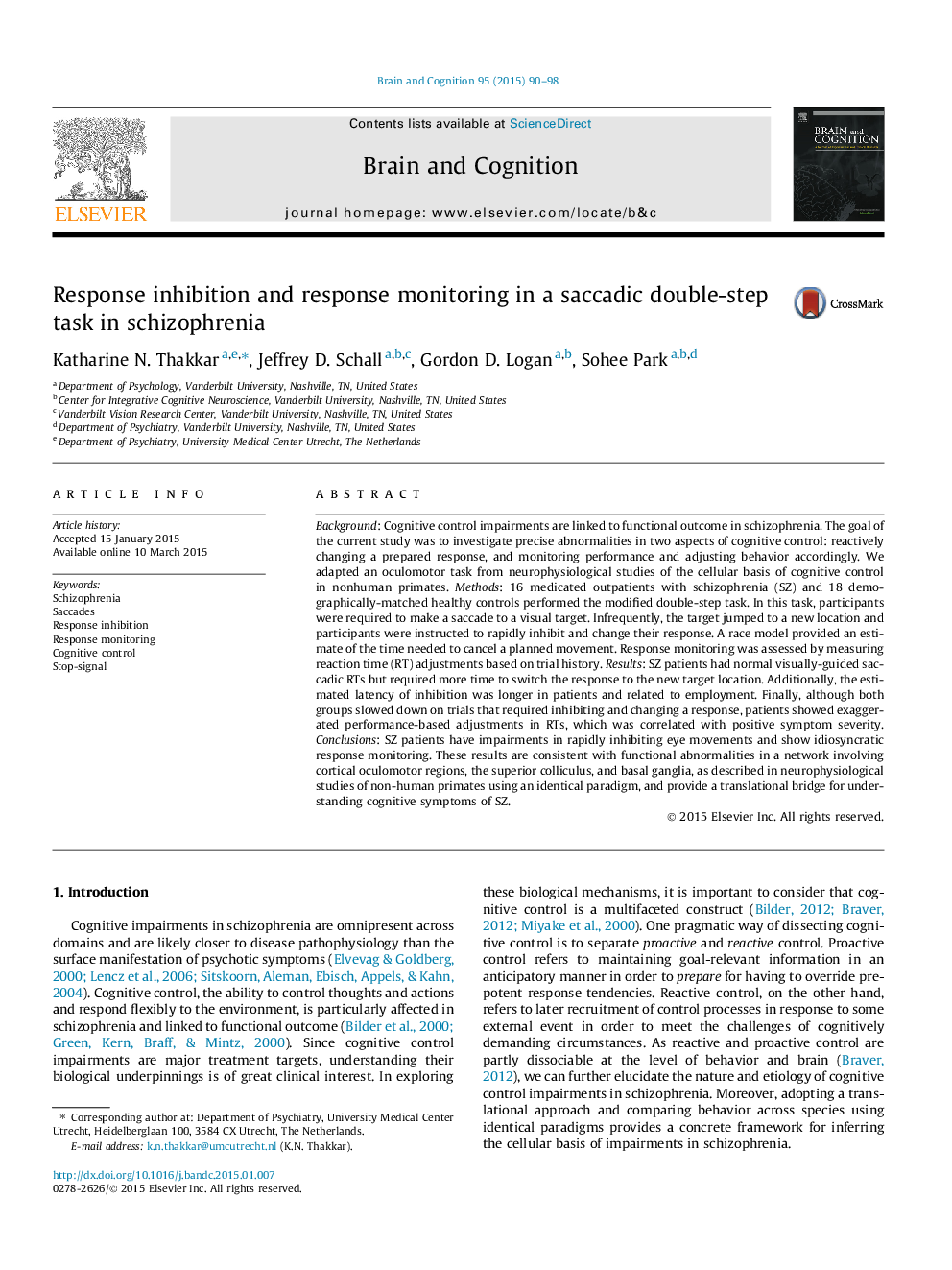| Article ID | Journal | Published Year | Pages | File Type |
|---|---|---|---|---|
| 924207 | Brain and Cognition | 2015 | 9 Pages |
Background: Cognitive control impairments are linked to functional outcome in schizophrenia. The goal of the current study was to investigate precise abnormalities in two aspects of cognitive control: reactively changing a prepared response, and monitoring performance and adjusting behavior accordingly. We adapted an oculomotor task from neurophysiological studies of the cellular basis of cognitive control in nonhuman primates. Methods: 16 medicated outpatients with schizophrenia (SZ) and 18 demographically-matched healthy controls performed the modified double-step task. In this task, participants were required to make a saccade to a visual target. Infrequently, the target jumped to a new location and participants were instructed to rapidly inhibit and change their response. A race model provided an estimate of the time needed to cancel a planned movement. Response monitoring was assessed by measuring reaction time (RT) adjustments based on trial history. Results: SZ patients had normal visually-guided saccadic RTs but required more time to switch the response to the new target location. Additionally, the estimated latency of inhibition was longer in patients and related to employment. Finally, although both groups slowed down on trials that required inhibiting and changing a response, patients showed exaggerated performance-based adjustments in RTs, which was correlated with positive symptom severity. Conclusions: SZ patients have impairments in rapidly inhibiting eye movements and show idiosyncratic response monitoring. These results are consistent with functional abnormalities in a network involving cortical oculomotor regions, the superior colliculus, and basal ganglia, as described in neurophysiological studies of non-human primates using an identical paradigm, and provide a translational bridge for understanding cognitive symptoms of SZ.
